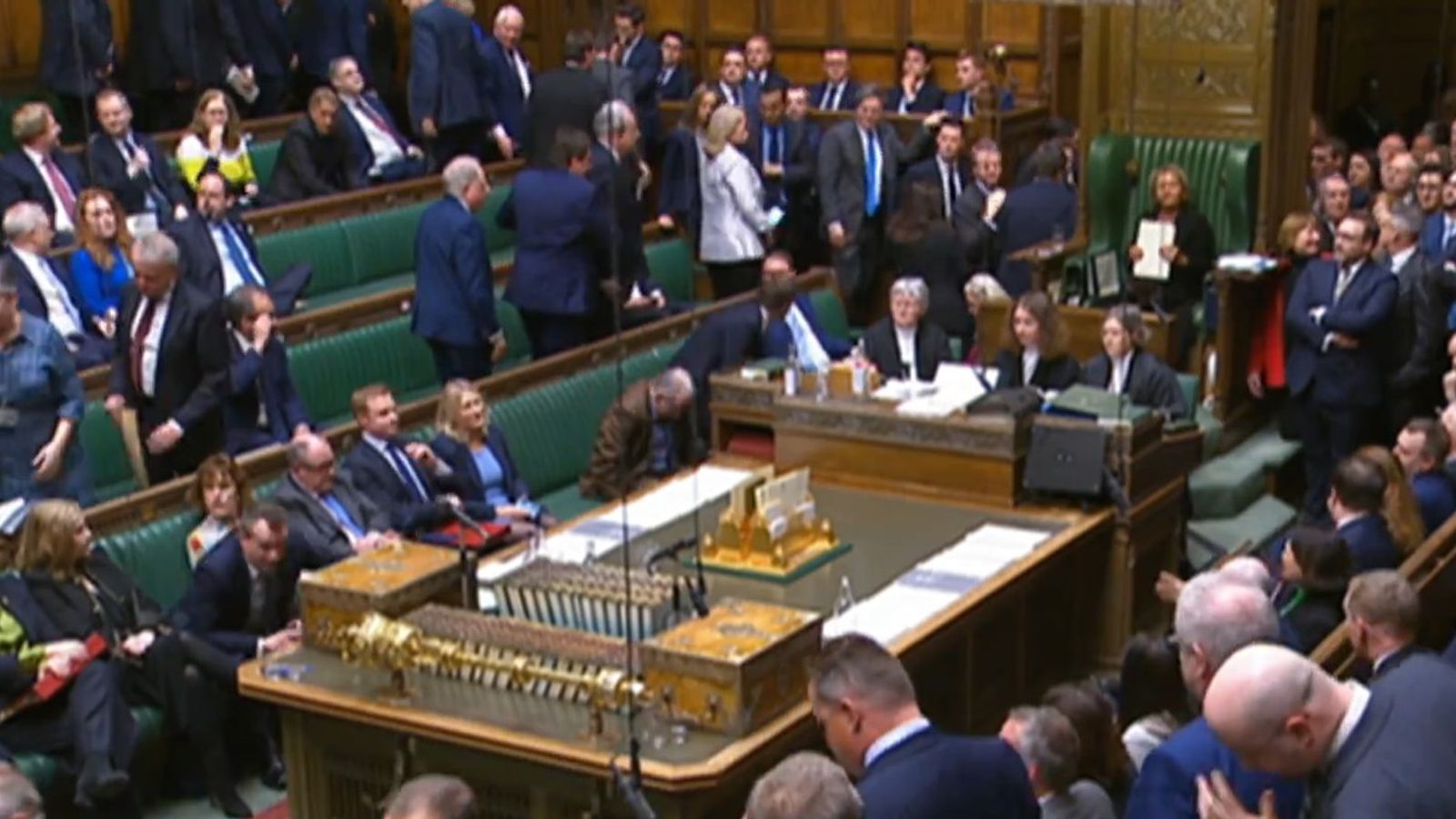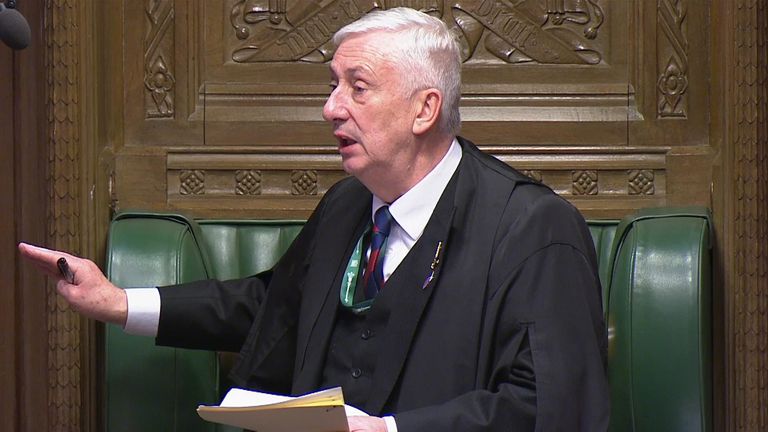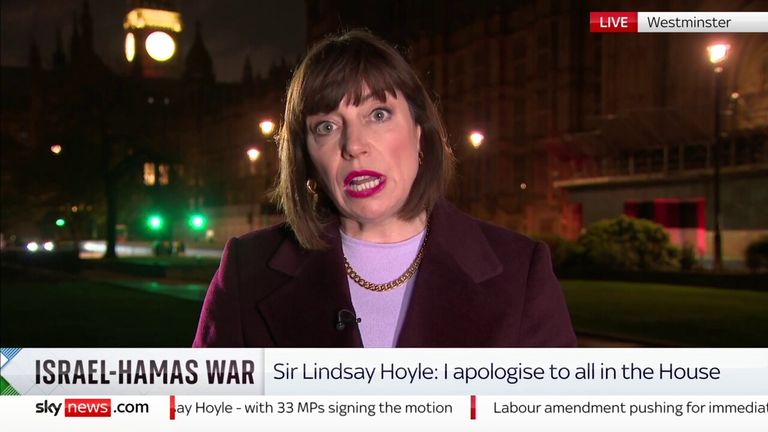MPs branded ‘a disgrace’ as consensus on a Middle East ceasefire takes second place to political point-scoring


Sir Keir Starmer started the day facing the prospect of a very sizeable rebellion and possibly even a shadow cabinet resignation or two as dozens of MPs warned that they wouldn’t be able to vote against the SNP motion calling for an immediate ceasefire in Gaza.
And yet he ended it becoming the first political leader to pass a motion through the Commons calling for a ceasefire after the Speaker broke with decades of precedent to allow a vote on a Labour amendment to the SNP motion.
Talk about a lucky general, a victory snatched from the jaws of defeat. One former Tory cabinet minister messaged me from the green benches saying that “Labour whips had walked out of the chamber grinning” as the Commons descended into chaos.
But the truth of it was that no-one won last night. MPs squandered a chance to come together to find some consensus around ceasefire terms for in the Middle East.
Instead, against the very real backdrop of divided communities across the UK and growing threats to MPs over this difficult issue, we saw the spectacle of political point scoring and rows over parliamentary procedures as MPs took positions to stoke dividing lines with an eye on the election ahead.
There was very little thought given to the tensions already at play in our communities over this long and bloody war as MPs, given the option to dial it all down, just stoked it all up.
Now the Speaker is in crisis with over 30 MPs already having signed a motion of no confidence in Sir Lindsay Hoyle after the MPs exploded in fury over his decision to break decades of precedent and allow Labour and the government to table amendments to the SNP ceasefire motion.
Please use Chrome browser for a more accessible video player
5:32
Speaker Lindsay Hoyle clings to job
Stephen Flynn, the SNP’s Westminster leader, told me after the vote it was a “stitch up” in which Sir Keir had done a backroom deal with Sir Lindsay – something both sides deny. It’s unclear tonight whether he can survive with one of his friends telling me the speaker’s “in big trouble”.
But it is also a dreary reflection on the state of our politics. The SNP tabled this motion to expose Labour splits, knowing all too well that dozens of Labour MPs would have to support calls for an immediate ceasefire, even if that meant defying the whip.
Advertisement
Labour then changed its position to back an “immediate humanitarian ceasefire” and tabled its own amendment. Clearly, there wasn’t a huge amount of different between the SNP’s motion and Labour’s, but a shadow cabinet figure told me Starmer was clear to his top team he couldn’t support the language in the SNP motion referring to the “slaughter” of people or the “collective punishment” of Palestinians given he might have to negotiate with Israel as the PM in a some months’ time.
Please use Chrome browser for a more accessible video player

2:20
Beth Rigby: There will be more political game-playing in the coming months
Then the government got involved tabling their own amendment for a “humanitarian pause” which made it unlikely Labour’s amendment would be called – until the Speaker intervened because of his concerns over the security of MPs and their families.
“I am still concerned,” he told MPs as he was dragged to the chamber to explain himself to fuming MPs. “I have tried to do what is right for all sides of the House.”
Amid the rowing, there are MPs from all sides in despair at this politicking on such a serious, and difficult issue. One Conservative MP told me they had been “riddled with anxiety over how to vote, angry at being cast as either a “child murderer or an anti-Semite when I’m neither”.
Labour MP Jess Phillips, who quit the frontbench last year to support a ceasefire, told me the whole thing had been “a disgrace”: “How can we ask people to lay down arms, when we can’t even manage to lay down words?”
When you boil it down, there weren’t huge divisions between politicians over Gaza. But instead of trying to find common ground we are in the phase of politicians trying to draw dividing lines.
It comes at a high price – be it around MPs’ safety or the tensions this stokes in our communities.
What MPs decide in Westminster will make little difference to the fate of those in Gaza. But it has serious implications here at home. That they didn’t come to meet that moment, is a new low.